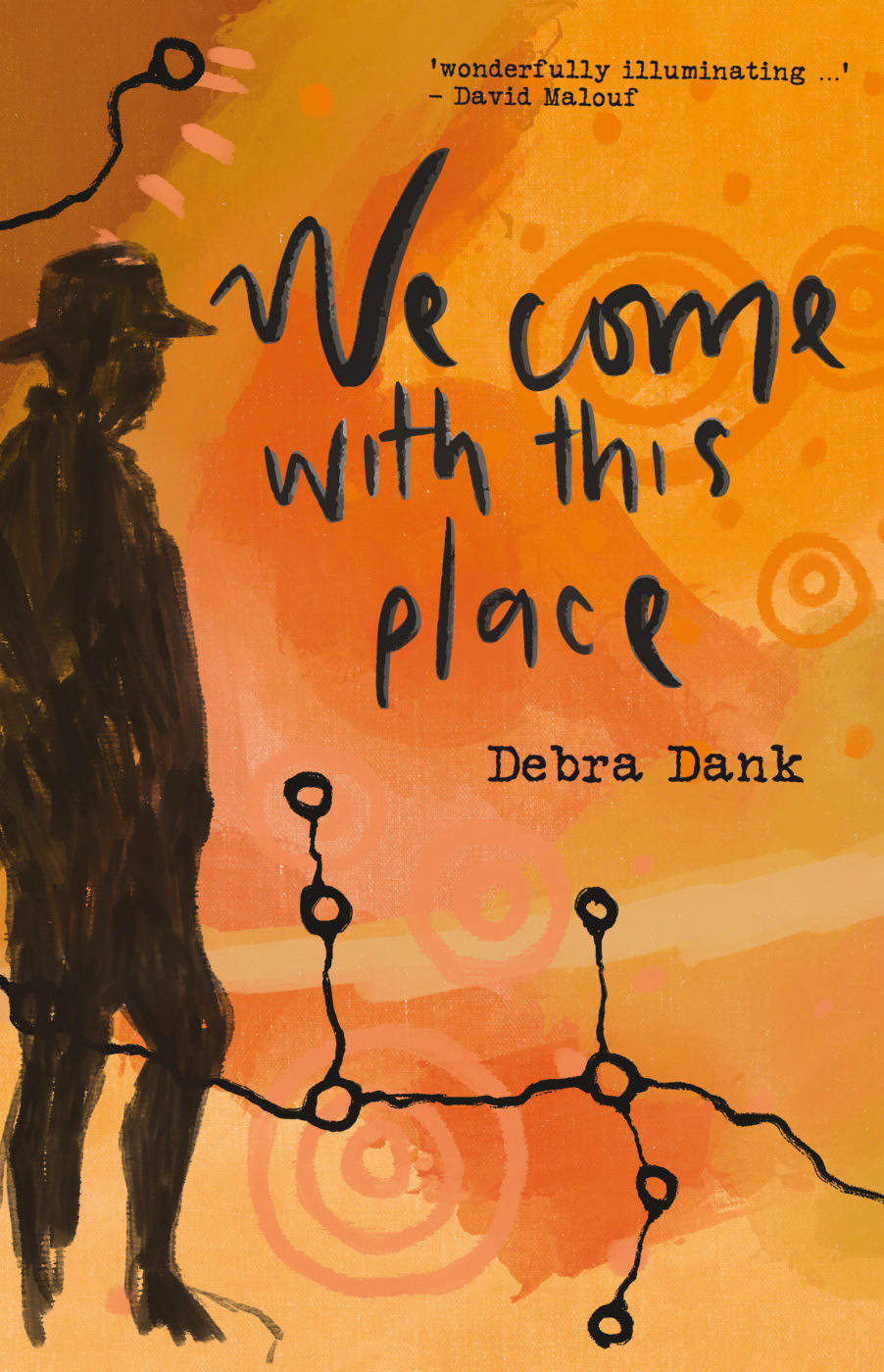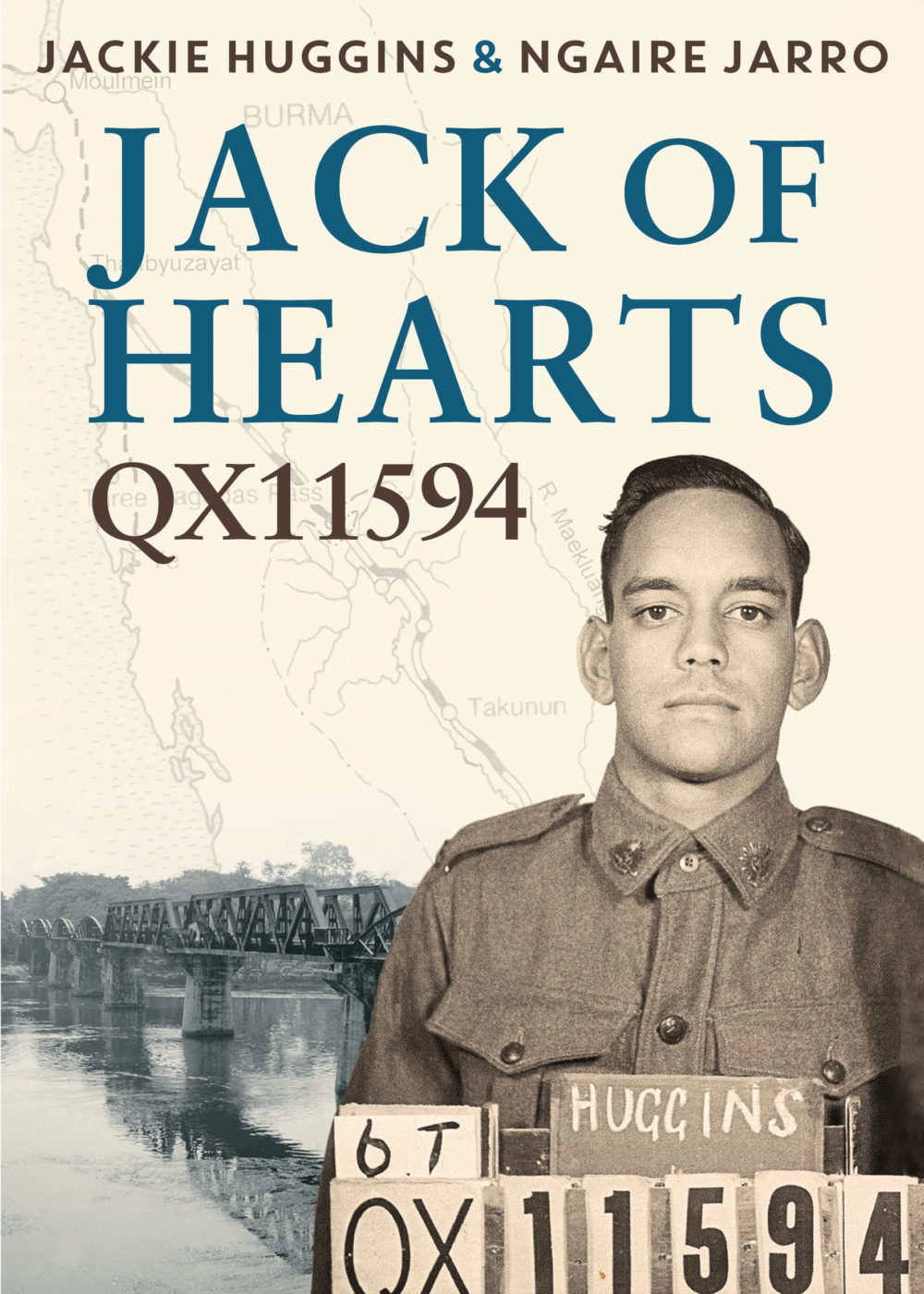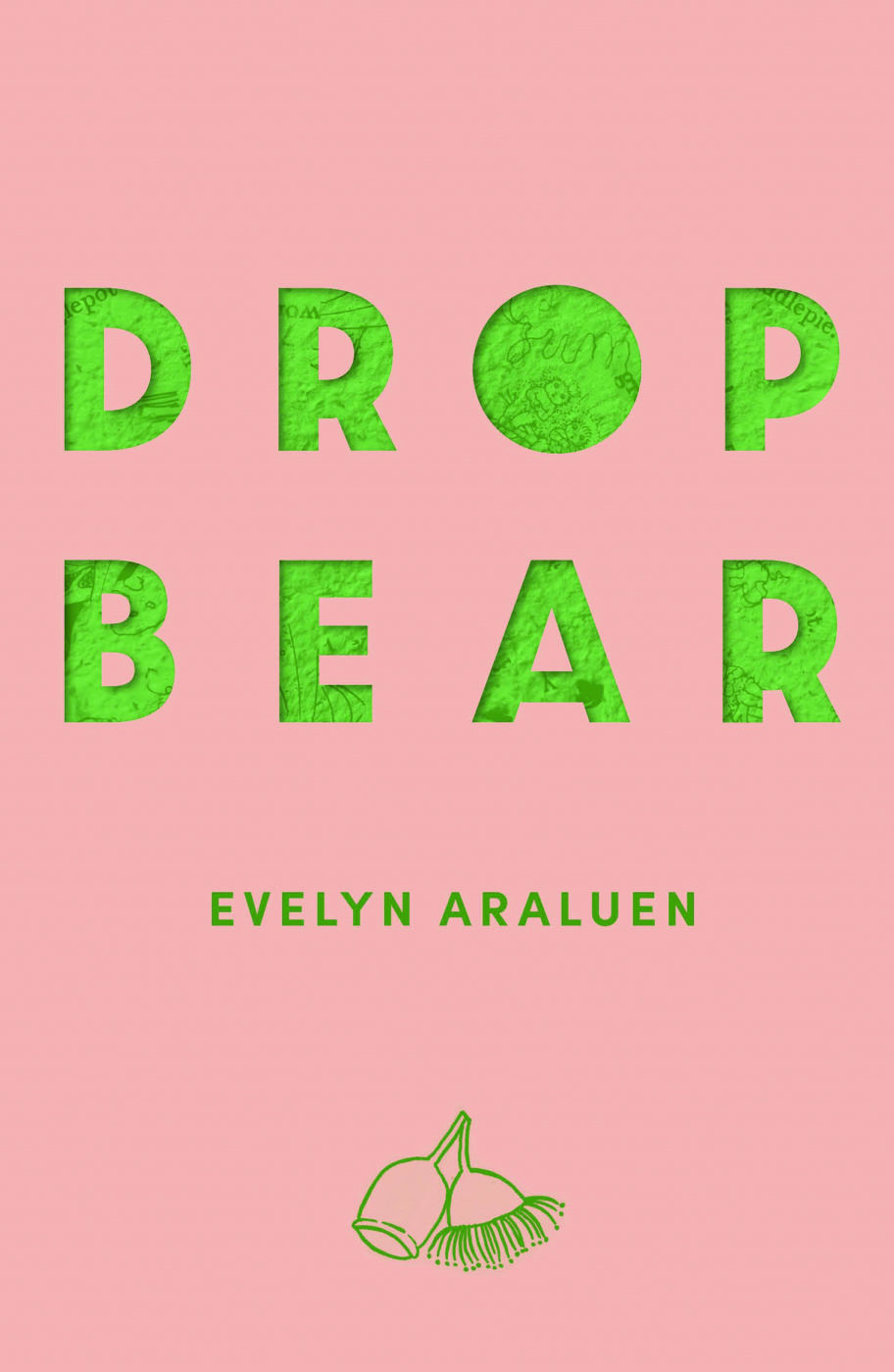15 First Nations books to add to your October reading list

Moving, inspiring, confronting, funny, and essential. These are some of the adjectives that the Stella Prize Judges have used to describe the books written by First Nations authors who have been listed for the Prize.
Discover stories of kinship, heartbreak, colonisation, healing and the harsh realities of climate change in this essential reading list for all.
We Come with This Place by Debra Dank
Non-fiction | Longlisted for the 2023 Stella Prize
An unforgettable book about Country and people crafted with the outmost care to pay tribute and celebrate the Guandanji Country, to which Dank belongs.
The 2023 Judges said: “Dank’s words are lucid and beautiful. Her skill not only as a keen observer of her own life, but as a narrative builder and scholar of it, is obvious. The shifting timeline that forms the structure of the book draws her stories together to shape our understanding intentionally and clearly as readers, without ever being overbearing. Dank treats Country with agency and power, and Country is what holds her stories in place. She complicates many of our assumptions as readers, including what to expect of memoir as a form and where to direct our attention.”
Jack of Hearts: QX11594 by Jackie Huggings and Ngaire Jarro
Non-fiction | Longlisted for the 2023 Stella Prize
This book is a moving project by Dr Jackie Huggings AM and Ngaire Jarro. It chronicles the life of their father, Jack Huggins, who was in the army in World War II and was captured by the Japanese in Singapore.
The 2023 Judges said: “Public attention is building on the vexed stories and allegiances of Aboriginal and Torres Strait Islander people in wars off this continent – this historical project reminds us of the plural lives of black soldiers. The reader is brought in to understanding its subject, Jack Huggins, through the footsteps of his daughters, the authors. It follows their own journey to know their father and his experiences. That journey, and the resonating impact of their father on their lives and others’, becomes as much the subject of the book as the biography they eventually construct.”
Read our interview with Huggins and Jarro.
Dropbear by Evelyn Araluen
Poetry | Winner of the 2022 Stella Prize
Dropbear is a breathtaking collection of poetry and short prose which arrests key icons of mainstream Australian culture and turns them inside out, with malice aforethought.
The 2022 Judges said: “Araluen’s brilliance sizzles when she goes on the attack against the kitsch and the cuddly: against Australia’s fantasy of its own racial and environmental innocence. Acerbic, witty, and with no reverence at all for the colony, Araluen remembers those dispossessed and voiceless, just as she predicts a hard-won future for her children – ‘look at this earth we cauterised/the healing we took with flame/I will show them a place/they will never have to leave’.”
Read Araluen’s acceptance speech.
Another Day in the Colony by Chelsea Watego
Non-fiction | Longlisted for the 2022 Stella Prize
In this collection of powerful essays that draw on her own experience and observations, Watego examines ongoing and daily racism faced by First Nations People in Australia.
The 2022 Judges said: “Watego refuses to pander to the needs of readers who aren’t Aboriginal. It is unapologetically written for her community. Watego’s descriptions of the institutional and physical violence Aboriginal people are forced to endure in contemporary Australia are clear, urgent, and white hot with rage. At the same time, her portraits of moments with family, community, and ancestors are tender, vulnerable, and joyous. Watego creates a Black intellectual republic through her words.”
Read an interview with Watego.
Bila Yarrudhanggalangdhuray by Anita Heiss
Fiction | Longlisted for the 2022 Stella Prize

Bila Yarrudhanggalangdhuray (River of Dreams) is inspired by the true story of Wiradyuri men – Yarri and Jacky Jacky – who saved the lives of sixty people during a flood that took place in 1852. It places the remarkable fictionalised story of Wagadhaany at the centre, allowing her sensitivity, grit, and strength to shine through on every page.
The 2022 Judges: “Heiss’s novel is written for all ages, and has a timeless quality, and yet it grapples with complex material, presenting an extraordinary portrait of what it means when a white woman’s desire to be seen as ‘good’ outstrips her loyalty to her Black friend. Heiss explores the contours of good intentions without bitterness or rancour. With a keen eye for detail, Heiss writes with poignancy and tenderness about Wagadhaany’s love affair and her journey to motherhood. In charting Wagadhaany’s struggles to keep her family together, and return to her home in Gundagai, Heiss has created a new national heroine. Bila Yarrudhanggalangdhuray belongs in the library of all Australians, no matter their age.”
Read our interview with Heiss.
Homecoming by Elfie Shiosaki
Poetry | Shortlisted for the 2022 Stella Prize
Homecoming pieces together fragments of stories about four generations of Noongar women and explores how they navigated the changing landscapes of colonisation, protectionism, and assimilation to hold their families together. This collection of poetry, prose and historical colonial archives, tells First Nations truths of unending love for children – those that were present, those taken, those hidden and those that ultimately stood in the light.
The 2022 Judges said: “Homecoming is both a genre-defying book, and a deeply respectful ode to the persistence of Noongar people in the face of colonisation and its afterlives. Elfie Shiosaki writes with a steady – and often invisible – hand, amplifying the voices of people whose words have been buried for too long. Shiosaki has produced a work of careful excavation. With an extraordinarily light touch on the page, Shiosaki moves beyond authorship, occupying, instead, the liminal space of daughter, caretaker, and choirmaster to a chorus of voices.”
Read our interview with Shiosaki.
Song of the Crocodile by Nardi Simpson
Fiction | Longlisted for the 2021 Stella Prize
This book explores the experiences of a First Nations community living on the outskirts of a rural town. Song of the Crocodile focusses on four generations of one family as a vessel to explore the insidious and generational impacts of racism, colonialism and violence.
The 2021 Judges said: “Simpson doesn’t shy away from the complexity and nuance of the characters, who are at once survivors, victims and perpetrators of trauma grounded in dispossession and injustice. However, nor does she deny these characters joy and meaning in their lives – bringing their stories to the page with great tenderness and lyricism. This book is necessary reading for all Australians.”
Listen to Simpson read an extract from her book.
Songspirals by Gay’Wu Group of Women
Non-fiction| Shortlisted for the 2020 Stella Prize
The promise of this beautiful book is in the title: Songspirals. The spirals unfold as the reader is invited into stories of family, land and culture, and the responsibilities of the Gay’wu group of women. This is storytelling that comes with obligation and by its nature has to be told in spirals, providing a glimpse into a profound way of learning about country, culture and family.
The 2020 Judges said: “Aboriginal Australian cultures are the oldest living cultures on Earth and at the heart of Aboriginal cultures is song. These ancient narratives of landscape have often been described as a means of navigating across vast distances without a map, but they are much, much more than this. Songspirals are sung by Aboriginal people to awaken Country, to make and remake the life-giving connections between people and place. Songspirals are radically different ways of understanding the relationship people can have with the landscape.”
Read an article about the Gay’wu group of women.
The Yield by Tara June Winch
Fiction | Shortlisted for the 2020 Stella Prize
A bittersweet homecoming awaits August Gondiwindi, the prodigal granddaughter who is wracked with grief and burdened with all she tried to leave behind. When August learns that a mining company is set to reposes Properous, on the bank of the Murrumby River, she goes on a quest to save the land whose stories her grandfather held so dearly and uncover the secrets of the river.
The 2020 Judges: “The innovative conceit of this work of fiction is Winch’s use of the language of the Wiradjuri people, to both tell the story and to teach language words. The result is a collection of interweaving stories that are revealed at a slow and gentle pace giving the reader the time needed to drop into the narrative. The vital importance of this story, as well as being a fabulous read, is that it reminds us that the way forward, the way to healing and reconnection, both for the land and for people, is through the depth of knowledge held within Indigenous languages.”
Read our interview with Winch.
Too Much Lip by Melissa Lucashenko
Fiction | Shortlisted for the 2019 Stella Prize
In Too Much Lip, the award-winning Goorie writer presents an unvarnished portrait of generational trauma cut through with acerbic humour.
The 2019 Judges: “There is no artifice in Lucashenko’s prose, which is stripped to the bone in a close study of secrecy and its consequences. Too Much Lip moves effortlessly in the telling: dangling from the precipice where ghosts emerge to tell inexorable truths to a serene bend on the river alive with lyrical magic realism. Ultimately, Too Much Lip reaffirms the power of family and the frayed ties that still bind.”
Read the our interview with Lucashenko.
Terra Nullius by Claire G. Coleman
Fiction | Shortlisted for the 2018 Stella Prize
This award-winning book is an original novel that addresses the legacy of Australia’s violent colonial history. The Natives of the Colony are restless. The Settlers are eager to have a nation of peace, and to bring the savages into line. Families are torn apart, reeducation is enforced. This rich land will provide for all.
The 2018 Judges said: “Claire G. Coleman’s Terra Nulllius is an arresting and original novel … The dramatic tale of flight and pursuit that unfolds across the book’s early chapters develops into a scathing commentary on the systemic depredations and injustices that are all-too familiar as consequences of the archetypal conflict that inevitably arises between the two groups the novel refers to simply as Natives and Settlers. Later, the novel shifts into the realm of science fiction, which is used to grant what initially appears to be a straightforward if slightly allegorised story of colonial oppression, dehumanisation and resistance an additional scourging layer of dramatic irony.”
Read our interview with Coleman.
Tracker by Alexis Wright
Non-fiction | Winner of the 2018 Stella Prize
In this meticulously researched book, Wright presents a collective memoir of the charismatic Aboriginal leader, political thinker and entrepreneur Tracker Tilmouth, who was taken from his family as a child and worked tirelessly for Aboriginal self-determination, creating opportunities for land use and economic development.
The 2018 Judges said: “In this remarkable biography, Alexis Wright follows an Aboriginal tradition of storytelling that she describes as a ‘practice for crossing landscapes and boundaries, giving many voices a part in the story’ … It is one man’s story told by many voices, almost operatic in scale. With a tight narrative structure, compelling real-life characters, the book sings with insight and Tracker’s unique humour. Wright has crafted an epic that is a truly rewarding read.”
Read Wright’s acceptance speech.
Heat and Light by Ellen van Neerven
Fiction | Shortlisted for the 2015 Stella Prize
In this award-winning three-part short story collection, van Neerven blends past, present, and future to examine belonging and the importance of family while examining the politics of Aboriginal land rights and reconciliation.
The 2015 Judges said of this genre-defining short story collection: “Van Neerven moves with ease between realism and fantasy, using elements of myth and mysticism in her storytelling. From one story to the next, the content is always rich and suggestive and the writing is always beautiful and clever. Each of these stories is told with passion and conviction; van Neerven writes with the confidence, maturity, and subtlety of someone twice her age, and with startling originality.”
Read our interview with van Neerven.
Mullumbimby by Melissa Lucashenko
Fiction | Longlisted for the 2014 Stella Prize
This is a darkly funny novel of romantic love and cultural warfare from one of Australia’s most admired Indigenous voices. The story, told with humour and a sharp satirical eye, is a modern novel set against an ancient land.
The 2014 Judges said of Lucashenko’s book: “Focusing on a conflict between competing Aboriginal claims, Mullumbimby is doing important cultural work in quietly dismantling the notion, still pervasive in white Australia, that Aboriginal Australia is homogeneous in its beliefs and opinions, in its languages and in its identity. This kind of differentiation in literature and art among not only various Aboriginal groups but also among conflicting attitudes, politics, claims and beliefs is potentially taking Australia’s understanding of itself to another level.”
Read an interview with Lucashenko.
The Swan Book by Alexis Wright
Fiction | Longlisted for the 2014 Stella Prize
The Swan Book offers an intimate awareness of the realities facing Aboriginal people. The energy and humour in Wright’s writing finds hope in the bleakest situations; with a remarkable combination of storytelling elements, drawn from myth and legend and fairy tale.
The 2014 Stella Prize Judges said: “Five creatures anchor Alexis Wright’s brilliantly surreal and inventive novel about imagination and the power of story. It’s a treasure chest of stories, fables, songs, myths and poems, containing a wealth of cultural references from across the globe. The Swan Book is also a furious and impassioned political fable, linking the fate of Aboriginal Australia to the trajectory of unstoppable global warming and employing the fathomless complexity of the living Aboriginal relationship to country as a way of exploring humanity’s connection to the earth.”


















